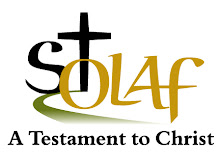Why do we celebrate this holiday on the 1st Monday of September? Is it a nod to the end of summer so we need to get on last weekend of camping or other types of outdoor activities in before school begins? That is how most of see Labor Day. In actuality the roots of this celebration are far removed from the end of summertime activities. And no it has nothing to do with women giving birth!
Labor Day is in place to celebrate the rights of those who work. The have the right to a fair wage, decent working hours, safe conditions to work in and fair treatment in the workplace. Does this sound familiar? I you have been keeping track of blog posts here this summer you will have noticed that these same rights we celebrate on Labor Day are discussed in the papal encyclicals on social justice. We celebrate to honor the fact that these rights have been fought for and are now in place, but we still must remember there are still places where workers still struggle for these rights. Work should offer us dignity not destroy us.
However you celebrate Labor Day, plan to begin the day with your family with this prayer from Catholic Household Blessings and prayers: “God our creator, we are the work of your hands. Guide us in our work, that we may do it, not for ourselves alone, but for the common good. Make us alert to injustice, ready to stand in solidarity, that there may be dignity for all in labor and in labor’s reward. Grant this through Christ our Lord. Amen.”
GIFT Snow Day!
14 years ago



